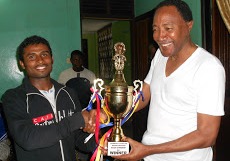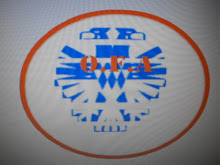
Midway through the second half of Spain's 2-0 Euro 2012 quarterfinal win over France, some of the Donetsk crowd gave their verdict on the game through the universal language of football fans - whistles and boos.

It was not a loud and angry response to a bad foul or a cynical piece of cheating and fittingly there was little passion in the brief protest.
Instead, it was a release of the frustration they felt at having paid to watch two of the continent's most respected footballing nations and been presented with a game that was as soulless as the pre-match music Uefa plays at Euro 2012 arenas.
France's half-hearted, disjointed performance, negative from the outset and utterly lacking in conviction or belief, had a lot to do with the empty feeling many left the Donbass Arena with.
But Spain's approach, with little flair, creativity or emotion, was what had caused the whistles, the fans clearly expecting more entertainment from a team who have dominated international football for the past four years.
Pass after pass going backwards, sideways and occasionally forward, but with little intent to actually pose a threat to the French goal, was the method of Vicente Del Bosque's team and it was enough to set up a semifinal against Portugal on Wednesday.
Spain have now kept 11 clean sheets and conceded only three goals in their last 14 European Championship and World Cup matches and there is simply no debate about the effectiveness of their tactical approach.
But it was disappointing to see a team searching for a unique major tournament treble play with such limited ambition having grabbed the lead in the 19th minute through a good old-fashioned run to the byline, cross and header.
The admirers of the 'Tiki Taka' game like to talk about the technical quality of the passing and movement, the intelligence and honing it requires but increasingly the possession has become used for a defensive, negative purpose.
For long stretches of the game, Spain were holding on to the ball not to build or create but simply to keep it from their opponents and even, it appeared in the second half, just to use up time.
While Barcelona's version of the method involves fast exchanges close to the penalty area with the glorious talent of Argentinean Lionel Messi providing the finishing touch, often in spectacular fashion, Spain are far more negative.
Del Bosque did not pick a centre forward again, a system which connoisseurs of tactics like to describe as playing with a 'false nine' but which in reality bares little relation to that innovation from the great Hungarian team of the 1950s.
Apart from Cesc Fabregas trying to get into the forward position later in moves and showing his lack of awareness in that role by frequently getting caught off-side, Spain's approach was simply to play with six midfielders in front of four defenders.
INCISIVE PASS
Not surprisingly, the result was that when Spain reached the phase in possession where most teams look for an incisive pass to a player in the box, they turned around, went back and started again. Pitifully, the French midfield allowed them to.
It is without doubt a functional style but in the same way that the concrete Soviet-era tower blocks across Poland and Ukraine are, achieving a purpose in an unappealingly pragmatic fashion.
European football has seen effective but emotionally draining tactics before.

Italian teams in the 1960s and 1970s produced a defensive system known as 'catenacccio' based around cancelling out opponents and almost exclusively relying on the occasional counter-attack for goals.
One internet commenter during Saturday's game certainly felt there was a connection between Spain's approach and the old method of Helenio Herrera at Inter Milan, describing the evolution of Del Bosque's tactics as 'Tiki-takanaccio'.
It will be fascinating to see whether Portugal, who unlike the French possess a deadly counter-attacking game around exceptional wingers Cristiano Ronaldo and Nani, can use their pace on the break to cut through the Spanish defence.
If Spain get through that challenge, they may well face Germany in the final, a team who have proved it is possible to play accurate, passing football allied with speed, directness and intent.
Curiously, the two strongest teams left in the tournament represent almost exact reverses of their national stereotypes, the passionate, exciting and unpredictable Germans and the supremely organised, efficient and effective Spanish.
If 'Tiki Taka' does triumph again, the neutrals will be hoping it is done with a little more imagination and verve than it took to dispatch the French.



























































































